#africa snapshots
Explore tagged Tumblr posts
Link
Dhow sailing transport vessels laden with cargo in the Indian Ocean under sunny blue skies in Stone Town Port (a UNESCO World Heritage Site). Zanzibar Unguja, the Spice Island, Tanzania, East Africa. Zanzibar Tanzania East Africa Travel Reportage Tourism
0 notes
Link
Maasai Elder Woman Ngorongoro Tanzania East Africa. Portraits Maasai of Ngorongoro Conservation Area en route to Ngorongoro Crater, Tanzania. Every Day Village Life Reportage.
0 notes
Text
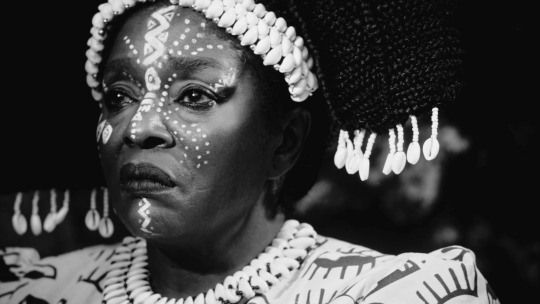
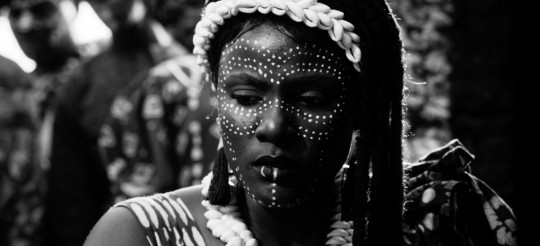
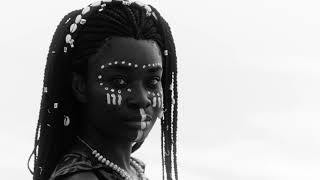

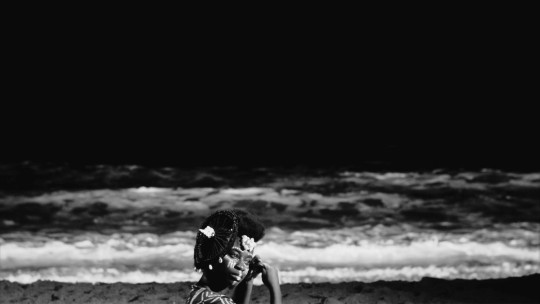
Mami Wata
🎭 C.J. Obasi
🌍 Nigeria, 2023
#film stills#cinephile#cinematography#cinema#nigeria#africa#african cinema#2020s#art film#art#obscure movies#film screenshots#film screencaps#snapshot#movies#new movie
18 notes
·
View notes
Text
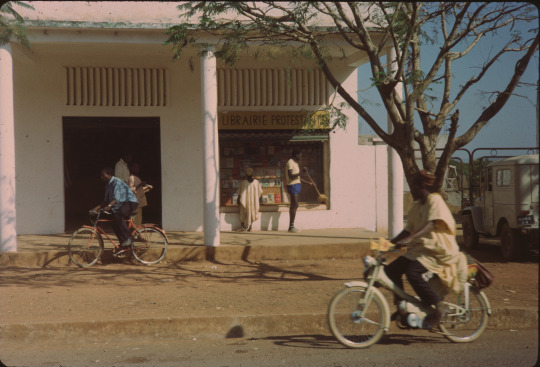
#1966#1960s#cameroon#cameroun#africa#biking#people#vintage#film#old photography#old photo#60s#snapshot#found photo#old photos#vernacular photography#photography#found photography#vintage photography#vintage photos#bikes#vintage photo
24 notes
·
View notes
Text
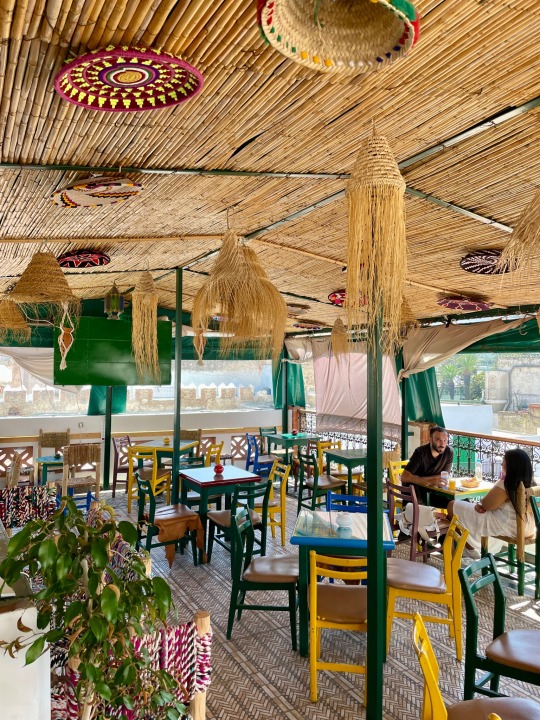
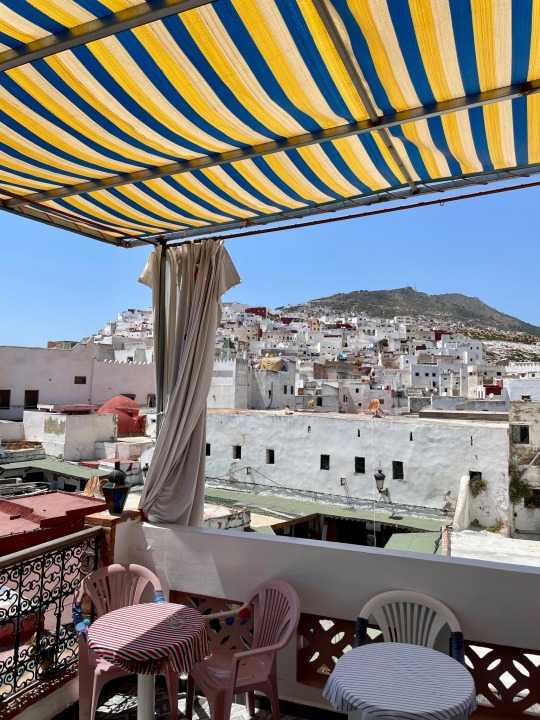

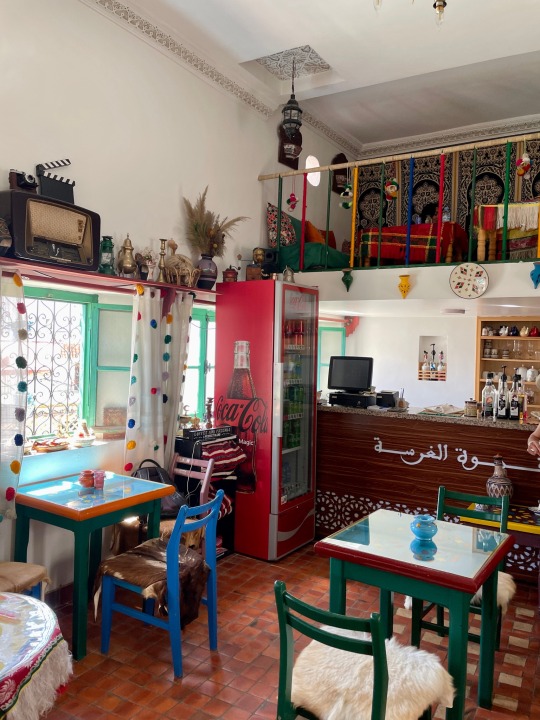
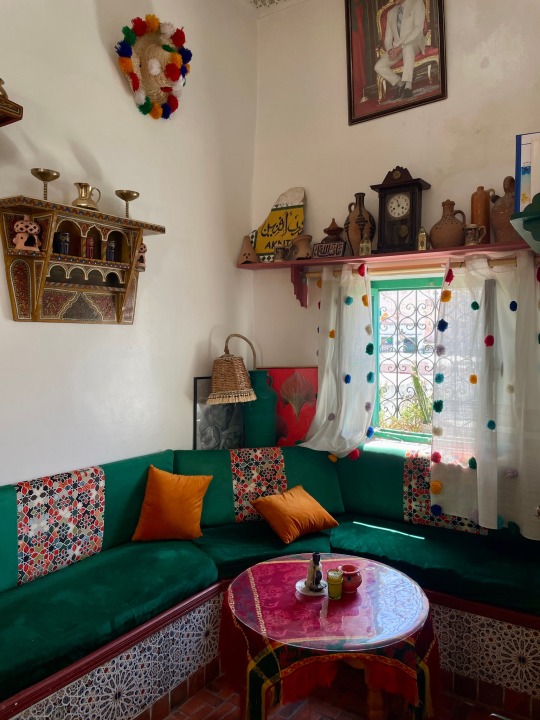
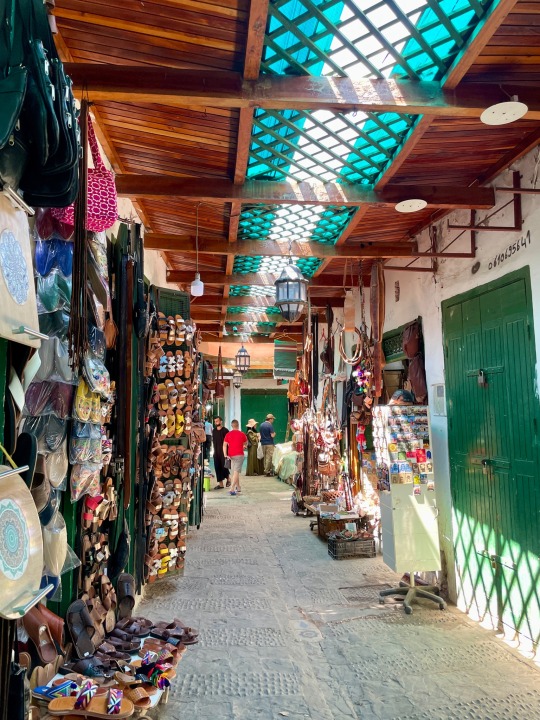
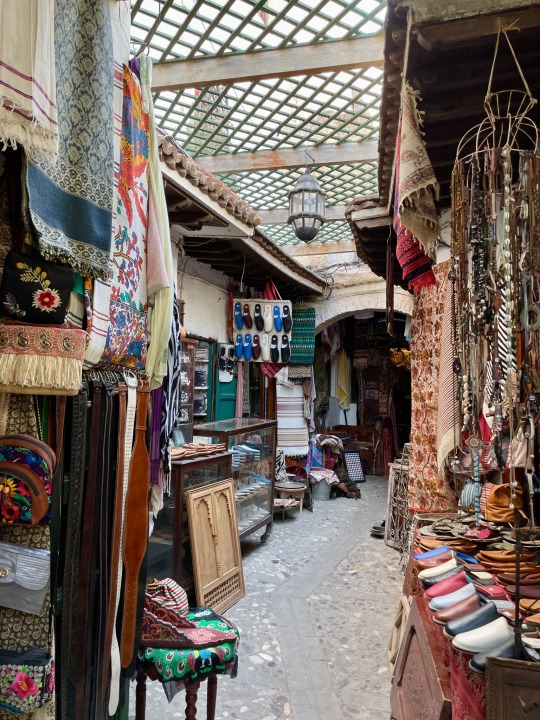
Out and about in Tetouan.
6 notes
·
View notes
Photo
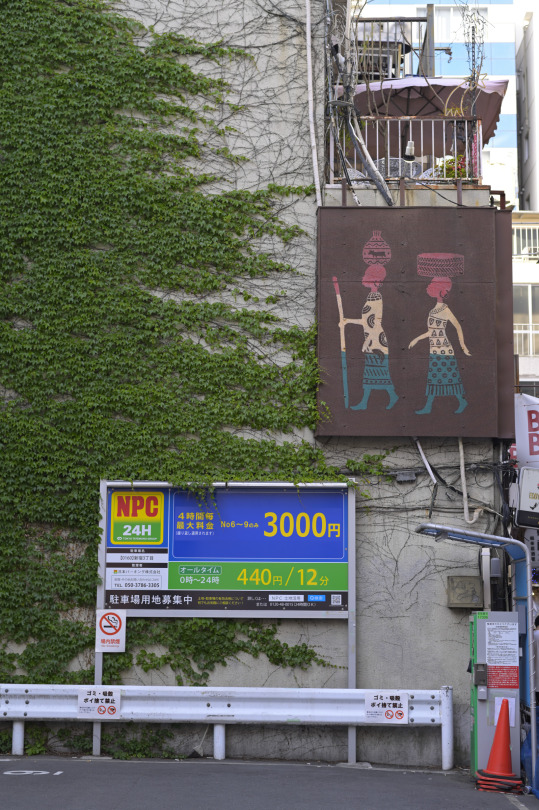
Shinjuku-sanchome, Tokyo, May 2023
0 notes
Photo
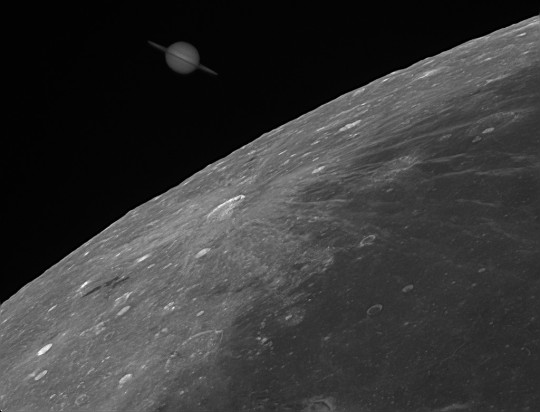
2024 July 27
Saturn at the Moon's Edge Image Credit & Copyright: Chengcheng Xu
Explanation: Saturn now rises before midnight in planet Earth's sky. On July 24, the naked-eye planet was in close conjunction, close on the sky, to a waning gibbous Moon. But from some locations on planet Earth the ringed gas giant was occulted, disappearing behind the Moon for about an hour from skies over parts of Asia and Africa. Because the Moon and bright planets wander through the sky near the ecliptic plane, such occultation events are not uncommon, but they can be dramatic. In this telescopic view from Nanjing, Jiangsu, China, Saturn is caught moments before its disappearance behind the lunar disk. The snapshot gives the illusion that Saturn hangs just above Glushko crater, a 43 kilometer diameter, young, ray crater near the Moon's western edge. Of course, the Moon is 400 thousand kilometers away, compared to Saturn's distance of 1.4 billion kilometers.
∞ Source: apod.nasa.gov/apod/ap240727.html
318 notes
·
View notes
Text
Daughter Dearest (Part Six)
Pairing: Cillian Murphy (47) x Step! Daughter (21)
Warning: Infidelity, Smut, Dysfunctional Family
Tag List will be updated soon! Please comment and engage!

As the day progressed, some more wild weather had settled in, but that did not prevent Cillian from going out and picking up a delivery for you, namely some photographs you had developed externally from your recent travels.
Usually, you liked to do these things yourself, in a studio of your own, at least when utilising analog films, but this was not an option right now. Cillian arrived home earlier than expected, his face still damp from the rain. The wind had picked up outside and the shutters beat against the brickwork of the house as he entered.
"Y/N," he called out, but you didn't answer. You had headphones on and was buried in one of your books.
He set the package down on the kitchen table and walked over to you, gently touching your shoulder. You looked up at him in surprise.
"I got your pictures," he said, pointing towards the table.
Your eyes lit up as you realized what he was referring to.
You pulled off your headphones and placed them next to you.
"Thank you so much for picking them up. You didn't have to," you exclaimed, beaming up at him, genuinely grateful.
"No problem," he replied with a soft smile.
You jumped up from the couch, making your way over to the kitchen table. You noticed that the package was slightly damp from the rain.
Carefully, you unwrapped the package, revealing an envelope full of developed photographs while Cillian stood behind you expectadly.
"Would you like to see them?" you asked, glancing back at him.
Cillian's gaze shifted between you and the envelope in your hands. He was curious, but he also didn't want to overstep any boundaries.
"Sure," he said finally, nodding his head. "I mean, unless they are too personal for you to share," he added quickly, remembering that you might not want him to see them.
You smiled at him, understanding what he meant. "I would love for you to see them," you told him, seeing how they weren't just random snaps. These photographs were part of your art and everything you photographed, especially during your last trip to Kenya, had a meaning. They showed a snapshot of life there, its beauty, its harshness, and everything in between.
You opened the envelope, carefully taking out each photograph, placing them on the counter. The room was silent, the sound of the shutters beating against the brickwork still echoing. It made the whole scenario more magical, making you feel as if you were back in Africa, immersed in all its vastness and incredible beauty.
You picked up the first photograph, a black and white image of a woman carrying a baby on her back. Her face was etched with lines that showed the passing of time, but her eyes held a spark of life and strength.
Cillian leaned over your shoulder to get a better look.
"She's beautiful," he murmured, taking in the woman's stoic expression and the way she was cradling her child with such tenderness.
You smiled, glad that he could appreciate the photo's beauty.
"Yes, I took that picture when I visited a Maasai village," you said, feeling a sense of pride bubbling up inside you.
"Their way of life is so different from ours, but there's so much beauty in their simplicity."
Cillian nodded in agreement, completely captivated by the raw emotion conveyed in the photograph. He pointed to the next picture, which showed a group of children playing in a dirt field with a makeshift soccer ball. "These kids look so happy," he observed, admiration in his voice.
"They were! I spent an entire afternoon with them," you replied, feeling a fondness for those kids coming back.
"They don't have much, but they truly know how to enjoy the simple pleasures. It's quite inspiring."
Your voice trailed off as you went through more pictures, showing mostly people and their raw emotions. Each face told a story, and this was obvious to Cillian who watched you, mesmerized by your passion for photography. It was clear to him that this wasn't just a hobby for you, but a calling. He couldn't help but be impressed by your ability to capture moments, feelings, and the spirit of the places and people you've encountered.
You turned around to look at Cillian, noticing how he seemed lost in thought. " What's on your mind?" you asked him gently, your hand reaching out to touch his arm.
Cillian started and looked at you, his gaze softening as he saw the concern etched on your face. "Nothing, I am just...," he stammered, unable to put his feelings into words just yet.
"Just what?" you pressed, sensing that something was bothering him.
He licked his lips nervously, indecision etched on his face. "I think that you have a true gift Y/N. These photographs are incredible," Cillian finally managed to say, his voice tinged with admiration.
You smiled, warmth spreading through you at the compliment, grateful for his acceptance and encouragement.
As the day went on, you, Cillian and you spent some more time together after, due to the bad weather, he had postponed his plan to catch up with his mate Dermont. You noticed the easy way Cillian interacted with you and the way he listened intently as you spoke about your photography, understanding and appreciating the way it moved you. He even shared some of his stories from his early filming days, for a bit of nostalgia.
Yet, despite this familiarity, there still lingered a sense of unspoken tension between the two of you. A pull that neither of you could explain or understand. It was an awkward dance of avoidance and stolen glances every so often.
The day after though, the weather cleared and Cillian went to see his best friend, meeting up with him for pint of Guiness downtown while you stayed at home.
You were still under house arrest and were only permitted to leave the property for an hour each day, during which you had to remain within a five-kilometer radius of where you lived. This was to permit you to exercise and attend to important matters, like shopping for essentials.
These restrictions were frustrating, and the monitor had caused a rash to appear on your ankle, but you tried to stay positive. At least you weren't in jail.
While Cillian was out, you took the opportunity to call Nadine, asking her to come over but, unfortunately for you, she declined. She had an interview for a new job that day and really couldn't miss it.
As you spoke to Nadine, who appeared somewhat reserved over the phone and when you asked her about what was wrong, she revealed to you that she had heard rumors concerning your arrest.
"I ran into Kevin at the hostel bar last night and I think it may have been Lucy who got the drugs into your bag," Nadine explained.
You frowned, feeling a surge of anger well up inside you. "But why would she do something like that?" you asked, incredulously.
Nadine sighed. "Well, apparently she was pretty pissed about you and Kevin having hooked up," Nadine explained, not condoning your mutual's friend's actions but clearly trying to explain the circumstances.
You scowled, frustration building up inside you at Lucy's pettiness. "But I haven't hooked up with Kevin at all," you hissed, your voice barely controlled. "In fact, most guys repulse me and that most certainly includes him," you added with a shiver of disgust.
Nadine remained silent for a minute, as if contemplating her next words carefully. "I know you didn't, but Lucy is pretty impulsive," she finally said, sympathetic. "Not that it makes it right though," she quickly added.
"But what am I supposed to do now?" you asked, frustrated. "I almost went to fucking jail because of her," you went on to say.
Nadine sighed heavily. "Look, Y/N, I don't know, but I should really go now. I have that interview in half an hour," Nadine said, her voice gentle and concerned.
"I know, I am sorry," you said, feeling a pang of regret. "I shouldn't be ranting," you went on to say.
"No, don't be silly. I'm always here for you, that's what friends are for," Nadine replied warmly. "But promise me that you won't do anything stupid," she added , feeling a sense of responsibility towards you.
You sighed heavily. "I won't," you answered, although this was far from the truth seeing how, as soon as Nadine hung up, you checked out Lucy's social media to see where she was at.
According to Instagram, she was still in town and you knew that you had to confront her. You wanted to get your name cleared and you wanted to tell her exactly what you thought of her. You were angry and you wanted her to know that you weren't someone to be messed with.
Thus, you quickly threw on a jacket, grabbed your sister's car keys, and headed out the door. The cold wind hit your face as you stepped outside, but you barely noticed. You were too focused on the task at hand.
As you drove towards the hostel, which was about nine kilometers away, your heart raced with anger. You couldn't believe that she had done something like this to you. You had never done anything to her, yet she had still decided to frame you.
The audacity of it all infuriated you, but you pushed past your rage and focused on the task at hand.
The hostel was crowded with young travelers, but you spotted her easily. She was sitting in the courtyard, sipping on an iced coffee and chatting with a tall blonde girl.
You approached her, feeling a surge of anger building up inside you. "Lucy," you said, your voice cool and controlled.
She looked at you, surprise flashing across her face. "Y/N?
What are you doing here?" she said, looking around nervously.
You ignored her question and cut to the chase. "Why did you plant drugs in my bag?" you demanded, anger tingeing your voice.
Lucy's eyes widened, and she looked at you in shock. "What? No, I didn't," she stammered, trying to deny it.
You raised an eyebrow, skepticism etched on your face. "Don't lie to me, Lucy. I know it was you," you told her sternly , your voice firm and unyielding.
She fidgeted, looking guilty as charged. "Fine. I did it. But I didn't mean for it to go this far," she whispered, finally admitting her wrongdoing.
"What do you mean you didn't mean for it to go this far?" You asked incredulously, not understanding why she would do something like this in the first place.
"I was drunk, and I heard about you hooking up with Kevin earlier that night. It made me jealous, and in the heat of the moment, wanted you to get in trouble," Lucy confessed, tears streaming down her face.
You stared at her, shocked and angry. "You must be joking! How could you do something so stupid? I could have ended up in jail just because of your drunken fit of jealousy!" you shouted, your voice incredulous.
"I am so sorry Y/N. I even went to see you the morning after, just before you left, but you had already gone. I wanted to warn you and make it all right. I promise," Lucy said, sniffling and rubbing her eyes just as, suddenly, you watched as a police car pulled up into the hostel parking lot, and it was then when you looked down at your ankle, seeing a red light flashing on it.
"Oh fuck," you hissed, realisation dawning on you and, before you had time to act, Lucy got up and ran off while the officers were approaching you.
You stood there, frozen on the spot, with your heart pounding in your chest. You couldn't believe what was happening.
"Miss Y/N Y/LN?" one of the officers called out, approaching you cautiously.
You swallowed hard, trying to steady your shaking hands as the figure in uniform stepped closer.
"You are in breach of your house arrest, Miss," the officer stated calmly, but with an underlying tone of authority.
You nodded dumbly, looking down at the monitor on your ankle. The red light blinked menacingly, betraying your location to the people who held your freedom in their hands.
"I'm sorry, I can explain," you stammered, attempting to reason with the officers in front of you. "I know who did what I got in trouble for and I came here to confront her," you said, quickly reaching for the device on your ankle, scratching your skin beneath.
"Well, ma'am, we will have to take you down to the station and you can call your next of kin and your solicitor when we get there," the second officer said, his tone stern but not unkind.
He and the first officer took hold of your arms, guiding you gently but firmly towards the patrol car parked outside the hostel.
As they led you away, you couldn't help but feel a wave of embarrassment sweep over you. What had you gotten yourself into? It was like a bad dream from which you couldn't wake up and, if they actually called your mother while she was on vacation, you knew you would never hear the end of it.
Tags:
@sunbeamseas @saint-ackerman @oatmealisweird @naxxsstuff @amanda08319 @r-m-cidnah @elysiannook @cillshot @infireddabdab @tastycakee @harrysbestiee @lilybabe22 @adalynlowell @henrywintersdearestgirl @ietss @thatgirlthatreadswattpad @ryiamarie @axionn
@nela-cutie @futurecorps3 @delishen @nosebleeds-247 @thirteenis-myluckynumber @gills-lounge @hjmalmed @lost-fantasy @tiredkitten @sidechrisporn @smallsoulunknown @charqing-qing @hopefulinlove @aporiasposts @shycrybaby @me-and-your-husband @hjmalmed @lacontroller1991 @galxydefender @aporiasposts
@galxydefender @hunnibearrr @saint-ackerman @lunyyx @gentlemonsterjennie1 @ihavealotoffandomssorry @nadloves @lost-fantasy @nolucesn@mcavoy-girl @hjmalmed @bloodybagels @obeyme4life @richiesgroupie @blushykiss @tatumrileyslover @teawithsatanx @orijanko @rhaenyra4ever @xcinnamonmalfoyx @budugu @nadloves @kmc1989 @bloodybagels @obeyme4life @richiesgroupie @forgottenpeakywriter @smailaway @sophiaaguirred @blondie-22
#cillian murphy imagine#cillian murphy x y/n#cillian murphy x you#cillian murphy x reader#cillian murphy smut#cillian murphy#cillian fanfic#cillian murhpy#cillian murphy fic#cillian murphy fanfiction#cillian murphy fanfic
96 notes
·
View notes
Text
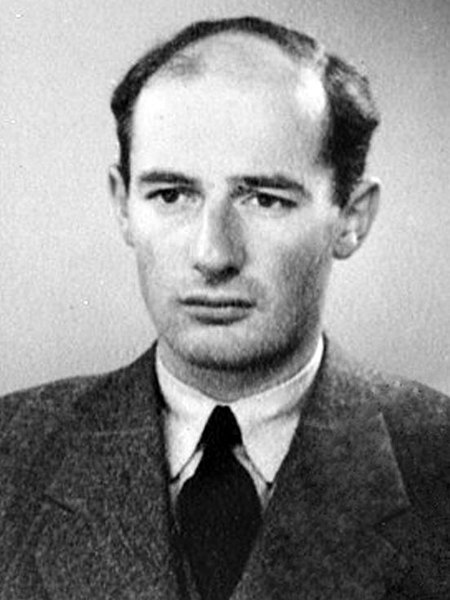
Worn and weary, balding, with sad eyes, Raoul Wallenberg looked much older than his 31 years of age when in 1944 he was assigned the responsibility of saving Jews in Hungary. The assignment came by way of the War Refugee Board, an American organization formed that same year with the goal of saving Jews from persecution by the Nazis.
Raoul, who had some Jewish lineage but was not considered Jewish, was born in Sweden to a prominent family of bankers, diplomats, and politicians. He was expected to follow in the footsteps of his family, but he decided to become an architect.
He went to study architecture in America, at the University of Michigan. During his time in college, Raoul worked odd jobs despite his family’s wealth, and hitchhiked across the US, Canada, and Mexico during holidays. He continued hitchhiking even after getting robbed and thrown into a ditch by four men who offered him a lift. In a letter to his grandfather, Raoul wrote of his love of hitchhiking, “When you travel like a hobo, everything’s different. You have to be on the alert the whole time. You’re in close contact with new people every day. Hitchhiking gives you training in diplomacy and tact.”
Raoul finished the University of Michigan with honors, even winning a medal for his scholastic achievements. Unable to find architecture work in Sweden after graduation, Raoul briefly lived in South Africa, soon moving to Palestine for a banking apprenticeship. It was in Palestine that Raoul first encountered Jewish refugees from Germany. The refugees made a strong impact on Raoul.
Upon returning to Sweden, Raoul went into the import/export business with a man of Hungarian Jewish decent. Once it became harder for his partner to travel to Hungary due to his being Jewish, Raoul started making the trips himself. He traveled frequently to Budapest, learned Hungarian in addition to his already knowing French, English, German, and Russian, and ultimately went on to head the international arm of the business, soon becoming a joint owner of the company.
In 1944 Germany occupied Hungary. At the time of the occupation, Hungary had close to 700,000 Jewish citizens. By the time Raoul arrived in Hungary on his mission of rescue, over 400,000 of them had been sent to Auschwitz.
Raoul wasted no time. He did everything he could think of to save Jewish people. He bribed, extorted, bluffed, and threatened to achieve his aims of saving as many people as possible.
With a fellow Swedish diplomat he created official looking protective passes to give out to Jews granting them Swedish citizenship and making them exempt from wearing the yellow badge that Nazis required them to wear. Sandor Ardai, one of Raoul’s drivers, recalled a time when Raoul came upon a train full of Jews about to depart to Auschwitz,
“He climbed up on the roof of the train and began handing in protective passes through the doors which were not yet sealed. He ignored orders from the Germans for him to get down, then the Arrow Cross [the Hungarian Nazi party] men began shooting and shouting at him to go away. He ignored them and calmly continued handing out passports to the hands that were reaching out for them. I believe the Arrow Cross men deliberately aimed over his head, as not one shot hit him, which would have been impossible otherwise. I think this is what they did because they were so impressed by his courage. After Wallenberg had handed over the last of the passports he ordered all those who had one to leave the train and walk to the caravan of cars parked nearby, all marked in Swedish colours. I don’t remember exactly how many, but he saved dozens off that train, and the Germans and Arrow Cross were so dumbfounded they let him get away with it!”
In total Raoul gave out tens of thousands of such protective passes, but the German government eventually caught on to the ruse and ruled the passes invalid. When Raoul heard of this, he called on Baroness Elisabeth Kemeny, the wife of the Hungarian Minister for Foreign Affairs in Budapest, for help,
‘’Raoul implored me to help. He was desperate. I talked to my husband and said he must do something. He told me ‘I can’t fight the whole cabinet.’ But after midnight word came that 9,000 passes would be honored. I can still remember Raoul’s elation, his happiness.’’ The baroness had finally persuaded her husband to help by threatening to leave him if he didn’t.
When the Germans abandoned the use of trains to transport Jewish prisoners, instead forming 125 mile death marches toward Auschwitz, Raoul began visiting stopping areas to save people.
“‘You there!’ The Swede pointed to an astonished man, waiting for his turn to be handed over to the executioner. ‘Give me your Swedish passport and get in that line,’ he barked. ‘And you, get behind him. I know I issued you a passport.’ Wallenberg continued, moving fast, talking loud, hoping the authority in his voice would somewhat rub off on these defeated people…The Jews finally caught on. They started groping in pockets for bits of identification. A driver’s license or birth certificate seemed to do the trick. The Swede was grabbing them so fast; the Nazis, who couldn’t read Hungarian anyway, didn’t seem to be checking. Faster, Wallenberg’s eyes urged them, faster, before the game is up. In minutes he had several hundred people in his convoy. International Red Cross trucks, there at Wallenberg’s behest, arrived and the Jews clambered on…”
In one of his final acts of rescue, Raoul intimidated the supreme commander of German forces in Hungary, Major-General Gerhard Schmidthuber, into not blowing up a Jewish ghetto housing 70,000 people. As the war was coming to an end and there was not enough time to send the remaining Jews to Auschwitz, Adolf Eichmann, a major organizer of the Holocaust, ordered the slaughter of all Hungarian Jews in one mass execution. When Raoul found out about this, he sent word to Schmidthuber that if he were to go through with the slaughter, Raoul would personally see that he was hanged for crimes against humanity after the war. Knowing that Hitler was close to defeat, Schmidthuber acquiesced and called off the massacre.
Raoul took such risks because his perspective on the work he was doing was simple, “I will never be able to go back to Sweden without knowing inside myself that I’d done all a man could do to save as many Jews as possible.”
In total Raoul saved close to 100,000 Jews. He himself was captured by the Soviets on suspicion of being a spy and is presumed to have died a Soviet prisoner.
Historical Snapshots
95 notes
·
View notes
Note
Colonialism is a disease
Imagine being an Arab Muslim and having the audacity to call someone else a colonizer. The illustration below is a snapshot of Islamic colonialism and occupation of other people's lands, from the 7th-9th centuries. Islam went on to attack, destroy, occupy and colonize vast swaths of Europe and southeast Asia, as well as what is now called Turkey.
The world has witnessed many colonial empires since the beginning of time. Most notably, the Mongols, Persians, Greeks, Romans, Babylonians, Egyptians, Islam/Ottomans, Portuguese, Dutch, French, Spanish, British, and American. The only empire that didn't take land, even after winning world wars, were the Americans. They actually gave back the Philippines. But I digress.
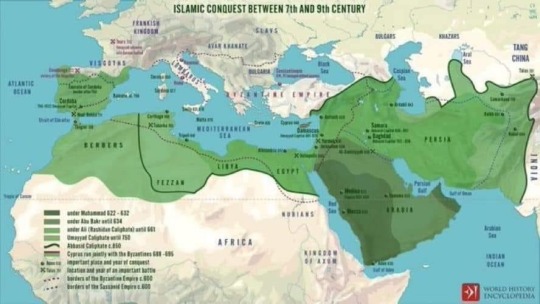
All of these empires were in large part, created by bloody conquest, and built on the backs of the newly subjugated. The Hebrews were, famously, slaves in Egypt. No one seems to teach this in the west, focusing more on the Romans, but of all the colonialists, one of the most deadly brutal and expansionist empires were the Muslims aka the Islamists. The Islamic empire expanded by sheer, from Medina (where Muhammad massacred and enslaved the 50% majority Jewish population) all the way into western North Africa, much of Europe, and large populations of Southeast Asia (Indonesia, Malaysia, parts of India now called Pakistan, etc). As it expanded using violence and fear, Islam literally took 100 million slaves out of Africa, and was responsible for one of the greatest mass murders in history: killing 10 million (or more) on the forced march from their homelands to the Middle East.
Some examples of Islamic slavery include the Al-Andalus slave trade, the Trans-Saharan slave trade, the Indian Ocean slave trade, the Comoros slave trade, the Zanzibar slave trade, the Red Sea slave trade, the Barbary slave trade, the Ottoman slave trade, the Black Sea slave trade, the Bukhara (Uzbekistan) slave trade, and the Khivan slave trade from which Islam took millions of slaves out of Persia to the Islamic khanates. There are Arab/Islamic societies today (Libya, a well-known example) that still trade slaves.
Compare this to Israel. Israel/Judea was never colonial nor expansionist. The Hebrews (aka Jews) were often properties of and were subjugated by, colonial empires, including the Islamic colonial empire.
They Hebrews themselves, as noted above, were most famously slaves of the the colonial Egyptian empire, some 4,000 years ago, before being murdered and subjugated by Islam starting in the 7th century. Somehow able to escape Egyptian tyranny through their own efforts (some say, by the grace of Hashem), the Hebrews settled in their current indigenous homeland 3.600 years ago - a small area by global standards, smaller than Belize, Albania, or Montenegro. They were happy there, and even at their peak, did not attempt to force convert others or expand much beyond their lands.
As historian Barbara Tuchman wrote, Israel is “the only nation in the world that is governing itself in the same territory, under the same name, and with the same religion and same language as it did 3,000 years ago.” Despite all the occupations and forced exiles, the Jews/Hebrews/Israelites have maintained a continuous presence in Judea/Israel/Samaria for some 3,600+ years. And even though Israel was granted modern statehood in 1948, it is one of the oldest continuously maintained countries in the world. The 'modern' state of Israel came to fruition post WWII, in 1948; the redefinition of borders and modern statehood after the fall of the big colonials was in no way unusual to Israel. Many country's modern borders came to be defined in the post colonial period (post WWI & WWII). While Israel and Lebanon and Iraq and Iran and Syria and Egypt were all ancient civilizations, dating back thousands of years, modern statehood came in the 20th century: For example, statehood was granted to Egypt in 1922; Saudi Arabia and Iraq in 1932; Lebanon in 1943; Indonesia, South Korea & Vietnam in 1945; Syria & Jordan in 1946; India & Pakistan in 1947; Israel, & Myanmar in 1948; Laos, Libya & Bhutan in 1951; Cambodia in 1953; Morocco, Sudan & Tunisia in 1956; Ghana & Malaysia in 1957; and so on.
The problem is, the tribalism and supremacy of Islam, can't stand that it's once-conquered land is now in the hands of the original owners. Islam believes that once it puts a flag in the sand somewhere, it's theirs.
Oh, and by the way, Andalusia (Spain) is next in Islam's sights.
#islam#colonialism#colonialist#colonizers#israel#secular-jew#jewish#judaism#israeli#jerusalem#diaspora#secular jew#secularjew#Islamic jihad#jihad#Hamas#taliban#Isis#Iran#gaza#Samaria#judea#samaria#judea and samaria#jihadis#hamas#hamas war#iran war#islamists
89 notes
·
View notes
Text
we have always been here: documentaries about trans people
documentaries about trans people, starting in the year 1953. I don't speak to filmic quality or whether or not something is problematic, what matters here is simply the testimony and the stamp of existence (including in those where the subject matter is spoken about, rather than getting to speak for themselves)
(I haven't seen every one of these yet, so some of them have slightly shorter texts to go along with them)
while (as you'll see) most of these are US-based movies, they are from all over the world. I'd be curious about whether there are any focused specifically on the intersection of transness and disability, I don't personally know of any, although of many speak to issues with access to healthcare (for example southern comfort)
all the ones that have links connected to them are watchable for free
some of these can be watched for free on the archive, youtube, vimeo, many could do with a few coins thrown their way: many of the movies, for example the the aggressives can be rented on vimeo, transgender tuesdays is free on youtube but accepting donations for trans women of colour, lotus sports club is doing festivals currently and is accepting donations to support the team and the vulnerable trans (now men) who have had to leave it to find work, call her ganda is accepting donations to support the family's legal costs in bringing justice for their daughter
remember, finding the stories that have been graciously shared is one thing, supporting our community is the next step
glen or glenda (1953): the first known movie about trans people, a mixed-media semi-fictional account (US)
the queen (1968) (US): following drag-queens at a national beauty pageant two years before stonewall, including footage of crystal labeija (US)
change of sex (1979-1999): a five-part series following trans woman julia grant as she tries to access gender affirming care via the gender identity clinic (UK - available on BBC iplayer)
paris is burning (1990): documenting queer people in the ballroom scene, community, competition, and challenges (US)
shinjuku boys (1995): following five young men who work at onabe bars, which cater to women, as they try to make ends meet (Japan)
transexual menace (1996): snapshots of the melting pot of trans life in new york, from famous faces, to protest, including several immigrants to america from columbia, west africa, japan, hawaii, and germany (Germany/US)
you don't know dick: courageous hearts of transsexual men (1997): about several trans men in different walks of life, who chat about their experiences, politics, and history (US)
the brandon teena story (1998): a documentation about the murder of brandon teena, using testimonies from the people involved (US)
southern comfort (2001): follows robert eads in the final year of his life, before he died of initially treatable ovarian cancer (US)
superstar in a housedress: the life and legend of jackie curtis (2004): a portrait of jackie curtis, one of the earliest punk pioneers, by (mainly cis) people who knew her (US)
screaming queens: the riot at compton’s cafeteria (2005): a rare documentary of the time featuring the voices of trans activists, about the pre-stonewall compton's cafeteria riot (US)
beautiful darling (2005): a portrait of candy darling (one of the trans woman superstars of the 60s) from the perspective of the (mainly cis) people who knew her (US)
the aggressives (2005): centered on black studs, mascs, and trans men, and more, exploring the term "aggressives," race and gender, filmed over five years (US)
Jayne County: man enough to be a woman (2005): a performance by veteran punk musician Jayne County and her band (UK/US) (excerpt)
beautiful daughters (2006): following a group of trans women who performed the vagina monologues in 2005 (US)
still black: a portrait of black transmen (2008): a series of interviews following black trans men speaking about their lives, careers, race, and gender (US)
the advocate for fagdom (2011): a series of political testimonies by queer activists, including the punk musician vaginal davis (US)
she said boom: the story of fifth column (2012): a documentary about seminal 1980s queercore punkband fifth column (Canada)
TRANS (2012): following a series of trans people at varying places in their transition, and the people around them (US)
hide & seek (2013): a group of trans people in pakistan speak about their experiences with the language they have access to (Pakistan)
before the last curtain falls (2014): transexuals and drag queens in their 60s-70s touring a show called "gardenias" (Germany)
mala mala (2014): following a number of trans people in puerto rico from all walks of life (Puerto Rico)
queercore: how to punk a revolution (2017): a primer to the history of queercore with interviews of some of the people who created the scene (US)
laerte-se (2017): a portrait of the underrated visual artist laerte (Brazil)
a year in transition (2018): 20 year old arab-american trans man documents one year of going on hormones (US)
call her ganda (2018): the story about the murder of a trans filipino woman named ganda by a us marine and the repercussions (Philippines)
indianara (2019): indianara is an activist fighting for trans survival and rights in brazil (Brazil)
disclosure (2020): going through a history of trans representation in the media (US)
transgender tuesdays (2020): featuring trans people talking about a groundbreaking gender-affirming clinic that opened in the 90s in the san franciscan tenderloin district (US)
prayers for sweet waters (2021): three trans sex-workers who live in cape town discuss their experience during covid (South Africa)
the end of wonderland (2021): follows erotic photographer tara emory as she goes through changes in her life (US)
travesía travesti (2021): the last performance of a cabaret during the chilean revolt of 2019 (Chile)
casa susanna (2022): documentary about the 50s summer retreat for male crossdressers and trans women (US)
la vida es un carnaval (2022): in a rural town, a group of trans women plan the first gay pride during its annual carnival and a bunch of scar tissue comes up (Mexico)
this is not me (2022): two young transmen in iran with supportive families share their daily lives (Iran)
lotus sports club (2022): a football club in cambodia run by trans man pa vann and a safe space for trans boys and lesbians (Cambodia)
nel mio nome (2022): four italian transmen share their thoughts, experiences, and identities (Italy)
the dads (2023): a group of dads of trans kids meet with the father of matthew shepard for a fishing trip (US)
kokomo city (2023): intra-community, celebratory documentary centering black trans sex-workers in america (US)
#queer stuff#trans stuff#queer resources#queer cinema#queer documentary#trans documentary#trans rights#queer rights#queer culture#queer art
94 notes
·
View notes
Text
I’ve been meaning to make a post like this for a while, so here are some fiction anti-colonial/anti-apartheid/anti-genocide books that I read for the cultural studies concentration of my literature degree, that I think are super readable/accessible and don’t see recommended often:
1. The Association of Small Bombs by Karan Mahajan

A novel about a boy who was a victim of a terrorist attack as a child and how he becomes radicalized by the same terrorist group that killed his friends as a young adult.
Additional/background reading:
youtube
2. The Story of a Brief Marriage by Anuk Arudpragasam
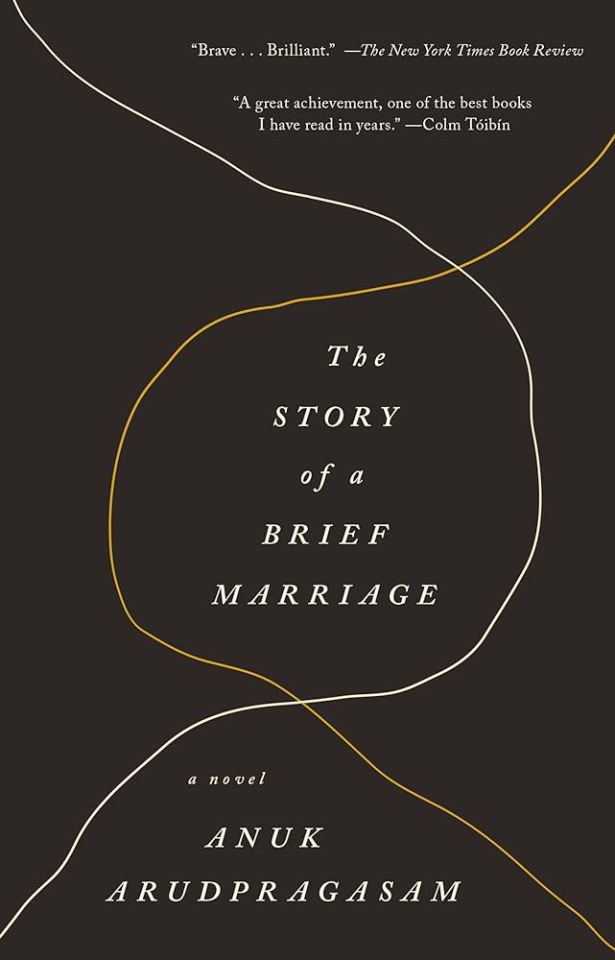
a 24 hour snapshot of the last few weeks of the Sri Lankan civil war where the Sri Lankan goverment bombed a no fire zone, killing as many as 70,000 civilians, the vast majority of whom belonged to the Tamil ethnic minority. (this book is extremely graphic but very worth reading imo)
Background/additional reading:
3. White Teeth by Zadie Smith
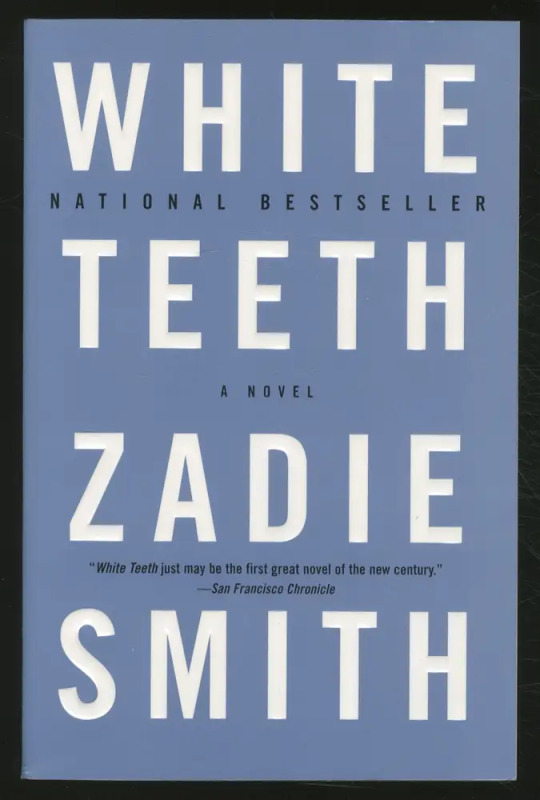
A post-colonial novel spanning several decades centering on two WWII veterans living in Britain; one a white Englishman, one a Bangladeshi immigrant.
additional/background reading:
4. An Imperfect Blessing by Nadia Davis

A novel about the Indian community in South Africa, told primarily through the lens of a teenage girl and taking place during the dissolution of the apartheid state.
background/additional reading:
5. Home Fire by Kamila Shamsie

A modern retelling of Antigone set in post-9/11 Britain and Pakistan.
additional/background reading:
#decolonize your bookshelf#book rec#book list#aka a list of books that changed my brain chemistry (/pos)#im also gonna put this on twitter i think#none of these are directly related to current events but I don't think having global historical perspective hurts#and beyond that these are all really good books (imo) that can be easily added to a reading list#most of them probably dont have a long wait at your local library either since idt any of them are trendy rn
57 notes
·
View notes
Text
Fossil Novembirb: Day 10 - Bayou in the Badlands
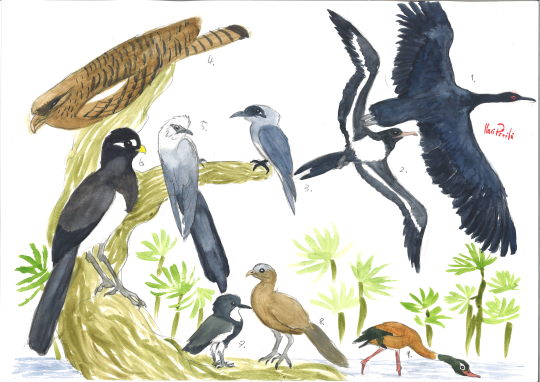
The modern landscape of the American west is but a far cry from its past. Early Eocene Green River formation preserves an incredible snapshot of time 50 million years ago. The locality of these fossils was once a huge lake system bordered by forests of sycamore and palmettos, and teeming with animals of all kinds, including birds, which were in the middle of an enormous radiation of forms.
Calciavis: A palaeognath which was a member of the lithornithids. Like them, it fed on insects from the forest floor and was a powerful flier. Some fossils preserve colour pigments of its feathers, suggesting this bird was a glossy black.
Limnofregata: The earliest known frigatebird that flew over the water just as its aeronaut descendants. Like modern frigates, it plucked prey from the water and the shorelines of the lake system.
Plesiocathartes: A bizarre bird that has had a complicated history. Now we know that it was an early relative of the cuckoo-roller from Madagascar and probably lived a similar lifestyle.
Celericolius: An early member of the mousebird family that had long wings and even longer tail. It may have flown at high speed through the forests.
Foro: This american bird is in fact an early member of turacos, birds which are unique to Africa today. Like them, it mostly fed on soft fruit.
Prefica: A strange bird who'se closest living relative is the oilbird of South America, which is a nocturnal frugivore. It could be that this ancient relative lived in a similar way.
Nahmavis: An early member of the shorebird family known from a spectacular fossil that preserves feathers.
Gallinuloides: The earliest known true galliform, this small fowl was among the early ancestors of guans, quails, turkeys and grouse.
Presbyornis: A widespread wading waterfowl related to ducks and geese. Sometimes called the flamingo-duck, it used its flat bill to filter its food, and may have nested in colonies like flamingos.
#Fossil Novembirb#Novembirb#Dinovember#birblr#palaeoblr#Birds#Dinosaurs#Cenozoic Birds#Calciavis#Limnofregata#Plesiocathartes#Celericolius#Foro#Prefica#Nahmavis#Gallinuloides#Presbyornis
48 notes
·
View notes
Text
I spent 15 hours, across three days, watching and taking notes on the legal proceedings at the International Court of Justice, where South Africa filed a genocide case against Israel.
South Africa's case was a temporal snapshot that lay the weight of decades of historical context. Although the specifics of the case pertained to Israel's actions in Gaza, its overarching objective reached beyond these particulars. At its core, the case sought to address the substantial disparity between the lived reality of Palestinians and the narrative propagated by dominant political forces.
Across the globe, public anger regarding the events in Gaza has manifested on the streets. However, political leaders consistently chose to overlook, dismiss, ban, or vilify this collective sentiment. Maybe it is recency bias, but in my lifetime, there has never been such a disconnect between politicians and their people than when it comes to Gaza.
The significance of South Africa's case before the International Court of Justice is that it publically challenges the portrayal of the Palestinian cause as a fringe issue.
Beyond merely outlining the severity of events – 23,000+ killed in Gaza, the 1.9 million displaced, the 7,000+ missing under the rubble, and the thousands of bombs dropped, making this the deadliest rate of conflict of the 21st century – the case links these claims to the Geneva Conventions and human rights law.
But where are we as a society, as a human race even, that we are at a point where the case was brought forth in the first place? Such an initiative questions the legitimacy of the international response and underscores the diminishing persuasive power of Western logic in an increasingly multipolar world.
The case represents a broader confrontation within international institutions, raising doubts about the actual existence of the human rights infrastructure. The conflict has placed Western allies in the precarious position of undermining or neglecting their own established systems, eroding their credibility on the global stage. When you're against the United Nations and hundreds of human rights organisations and��objecting to a submission in a global court (in the case of the US and UK, a court that they themselves established), you are simply pulling apart your house with the very tools that built it.
Western powers, having previously failed to support a Gaza ceasefire, will from now on be viewed in the global south as fighting on Israel's side. More so than they were already. And why wouldn't they be? These politicians have made it clear that they want to supply arms and military support to a regime, and their intervention, it seems, is contingent upon the safeguarding of goods shipment. These politicians assert that financial resources are lacking for reconstructing their nations, yet readily allocate funds for military endeavours. Why? How is any of this normal?
After the legal proceedings, Netanyahu said, "We will continue the war in the Gaza Strip until we achieve all our objectives. The Hague and the axis of evil will not stop us." Without compelling a policy change from Israel, what hope is there that South Africa's case will avail? It was obvious that Israel would use support from the US and the UK to prosecute the real agenda that Netanyahu and hundreds of Israeli politicians have hidden in plain sight (i.e. admitted on camera constantly): the destruction of Palestine and its people.
The recurring pattern is evident. Gaza transforms from an open-air prison to an open-air slaughterhouse under Israeli actions. Iraq faces invasion and fragmentation fueled by falsehoods and lies. Libya, once somewhat stable, descends into a state of civil war. Afghanistan witnesses invasion followed by prolonged failure and abandonment. Yemen endures relentless bombing, culminating in one of the most severe humanitarian crises in recorded human history. Syria? Also bombed, resulting in the displacement of thousands of refugees.
All of this, and more, is the legacy of Western "intervention", war, and policy in the Middle East.
Strangely, I find myself distanced from all this turmoil, yet the impact remains surprisingly profound. So many people I love have been impacted, yet I still experience a sense of detachment.
I go about my life. I have family and friends. I have hobbies and a job. But multiple times a day, it will hit me. I'll remember the videos I've seen of a mother crying over her son's body. Or the father carrying the remains of his children in plastic bags. Or the doctors performing amputations in overcrowded hospitals with nothing more than a dull butter knife. A wave of deep sorrow washes over me, settling in my chest like a persistent ache, lingering until I find a sufficiently absorbing distraction. And then, the cycle restarts.
But I don't want to be distracted. And I don't want to forget. I feel like I don't deserve to forget. It feels like the least I can do. Because I, unfortunately, do not have a megaphone loud enough to shout to those in positions of authority and tell them they are cowardly individuals sitting on chairs fashioned from the bones of Gaza's children.
In 2024, you would think that we would only be quoting Martin Luther King to learn about history and not to still use his message for current happenings, but he honestly said it best: "No one is free when we are all free."
32 notes
·
View notes
Note
3 and 6 for Matt please
3) Who depends on them. & something they lost, but would love to have back
These days? No one lol. Every once in a blue moon, Alfred needs his emotional support canuck or some backup or another pair of hands or a second pair of eyes. He might smack Matt on the shoulder like, "what would I do with out you, dude?" but that's a shakey premise on a good day. Love doesn't correspond 1:1 with need. Arthur is much more enmeshed with Europe whether he likes it or not. Jack and Zee go into the Pacific whether he likes it or not.
The picture differed greatly between the early Cold War and World War Two. Matt was this incredibly important bridge between two empires. I think we, myself included, sleep on this as a community. But so do even Canadian historians, unless they have a taste for diplomatic history. Just how important Canada was not only to the Americans and the British as two entities but how little would have gotten done in the North Atlantic without the ability to keep shit running, and everyone getting along just gets lost in the more dramatic stories. No one will make a movie like Saving Private Ryan or Dunkirk about boring stuff like food logistics or submarine hunting. Or if they do, the protagonist is going to be an American. British units serving next to Americans all across the European theatre dragged Canadian officers with them to do what essentially became anglo-to-anglo translation. We have this picture from the top down of Churchill and Roosevelt, but on every level below that, Canada is the great facilitator. To the point it causes conflict with India, Australia, South Africa and France. Even the USSR got a bit miffed about the influence of Canada in the early UN. At one point, he was this hinge between the power brokers and held enormous power. It's a lot of emotional intelligence that my autistic ass is kind of shit at writing, but the sheer influence he held for about 20 years is just so intense.
There was also a time when he was absolutely indispensable to his father. Need a war crime committed? The spare is prepared. More than half of the UK's food between 1940 and 1944 was Canadian, including 77% of wheat. By '44, More than 45% of RAF ground crews? Canadian. More than a quarter of the pilots were also Canadian. The entire gold reserve of the British Empire was smuggled to Montreal quietly and competently even most economic historians don't even remember its a thing. If it was asked of him, he did it, and he did it well.
But that was a very long time ago now. And perhaps, as L.P. Hartley put it, the past is another country. And I think Matt of today misses that time. Not the blood and treasure lost, not the strain, and god knows not the empire or even the rest of it, really. But there was that snapshot in time where he spoke and was heard. Before the French decided the Francophone soul of Canada was again politically expedient and did their damndest to tear it out, Matt was in so many ways, a stupidly important power broker. But that was long before he became a negative space where any echo of what Americans are or are not sounds.
24 notes
·
View notes
Text
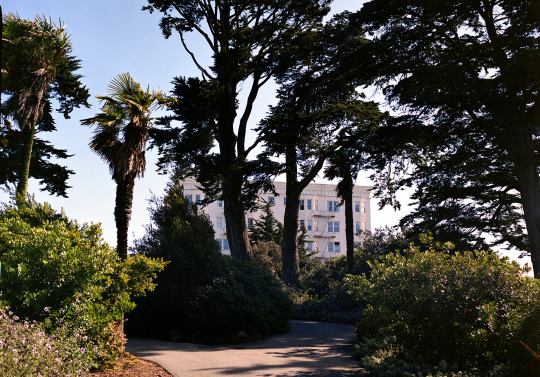
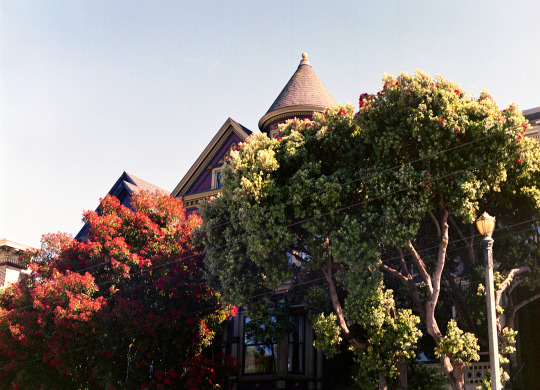
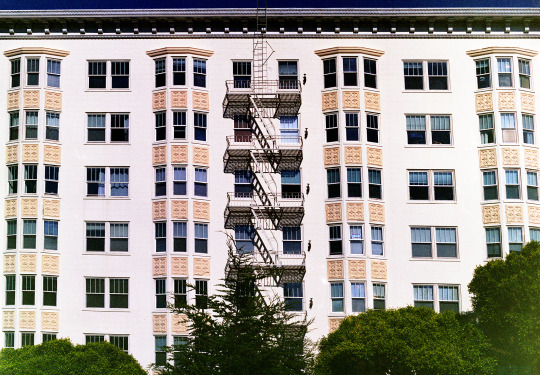
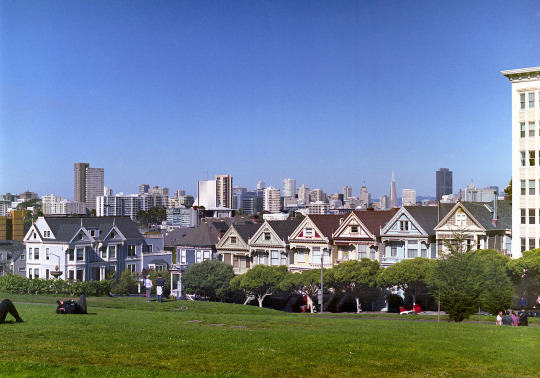
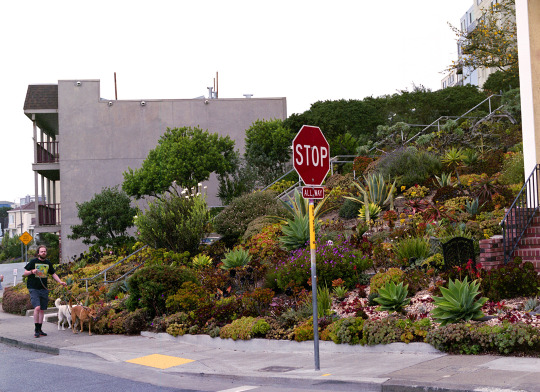
My mom always told me growing up that we had a lot of family in South Africa, but that we lost the contact after my grandmother passed (just before I was born). My grandmother was the one writing letters to our family and nobody picked up the letter writing after. I found it endlessly fascinating that we had family there and I never stopped thinking about it. My studies took me to South Africa in 2015 and I remember looking up addresses from old post cards my mom had, and looking up names in the Cape Town archives, but no luck. Finally in 2018, I found a woman who might be our relative through a lot of research through books and online sources and help from my mom. I basically wrote: Hi, you might be my cousin. If you aren`t, ignore this email.
Not long after I got a reply basically saying that we were indeed cousins. And that they had been looking for us for a long time.
The cousin that I found online had moved to California with her family many years ago and lives just outside of San Francisco. I told her that I would love to meet next time I was in California. So I did! I am so happy for this re-connection between us! Such a generous and lovely family greeted me and I could have stayed a lot longer. Next time!
These are some snapshots from the family visit where we went to San Francisco to meet more family. I met the lovely @tasha_thorsen in San Francisco. Thank you again for showing me around, I hope I can return the gesture one day.
#linn heidi stokkedal#photography#photographer#analog#analog photography#snapshot#colorfilm#staybrokeshootfilm#San Francisco#California#visit#holiday#snapshots
7 notes
·
View notes